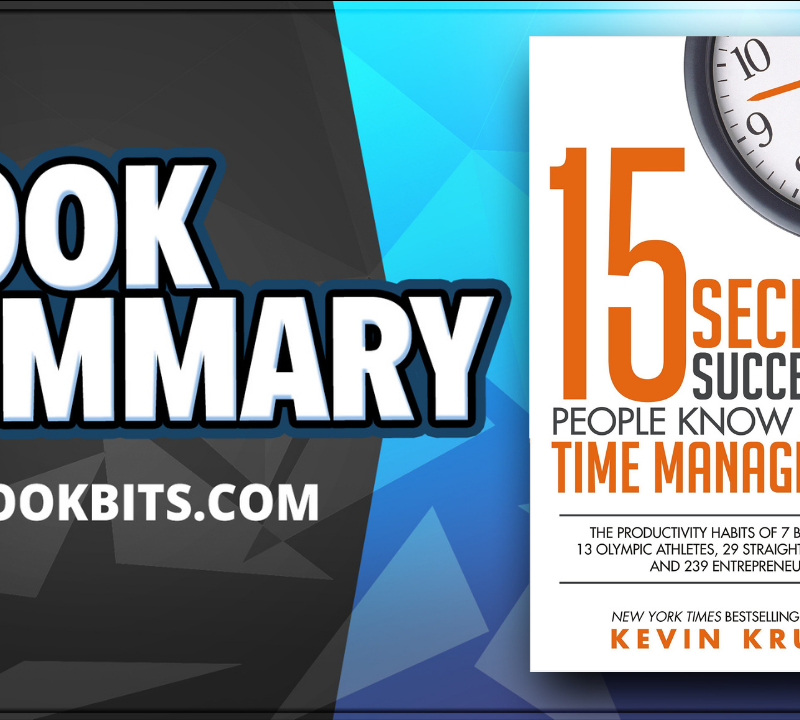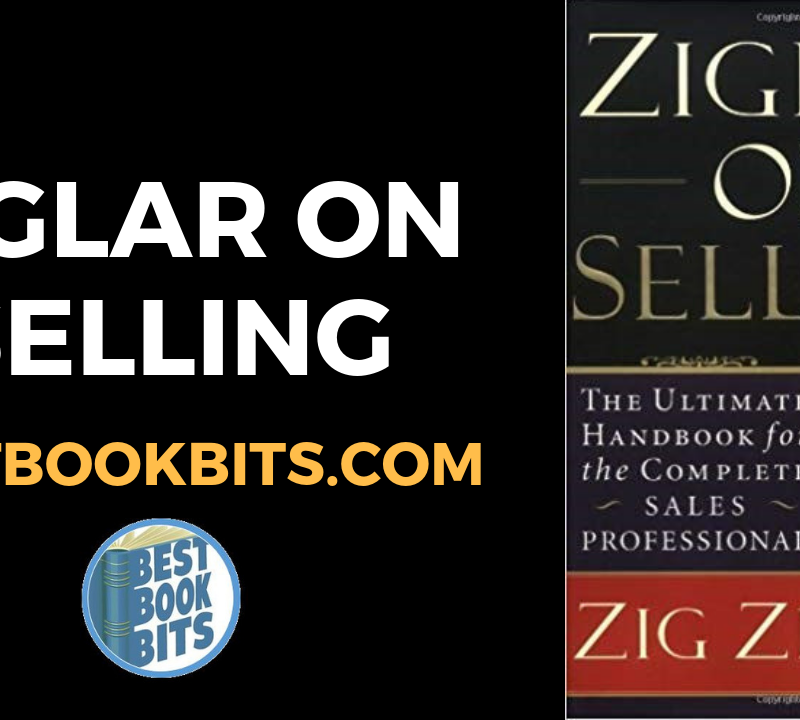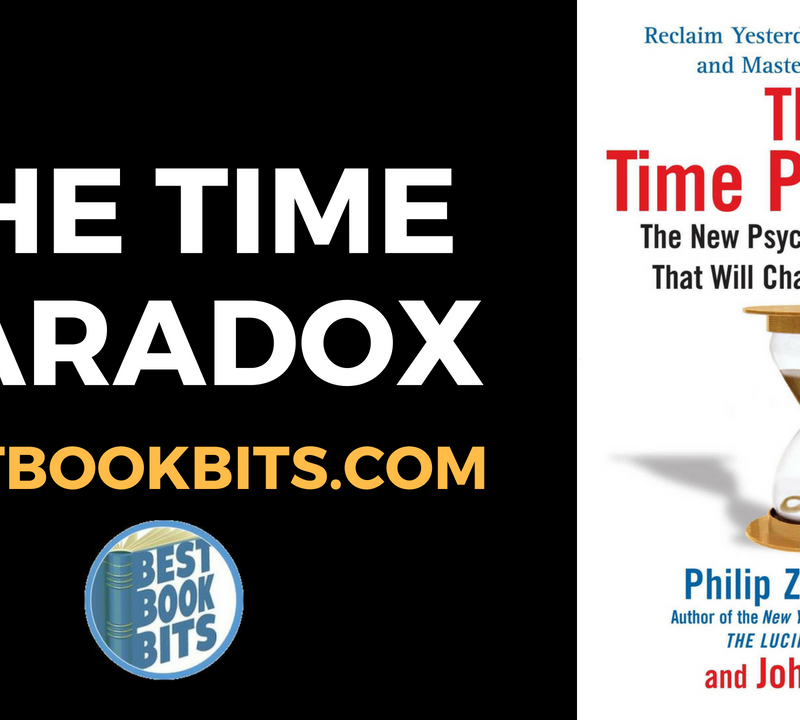★DOWNLOAD THIS FREE PDF SUMMARY HERE
? MY FREE BOOK TO LIVING YOUR DREAM LIFE”
? SPONSOR BESTBOOKBITS BY USING PATREON
? SUPPORT BESTBOOKBITS BY CLICKING THE LINKS BELOW
- 150 PDF Summaries
- Coaching Program
- Subscribe to My Channel
- Website
- Spotify
- Book Club
- Mailing List
- You have the ability right now to achieve more than you ever have before, as long as you incorporate three essential mental skills into your life: clarity, focus, and concentration. You must become absolutely clear about who you are and what you want. You must focus on your most important goals and activities. And finally, you must concentrate single-mindedly until you have completed your tasks and achieved your goals.
- The fact is that you can’t hit a target that you can’t see. (Zig Ziglar)
- If you don’t know where you are going, any road will get you there. (Lewis Carroll)
- A person with a clear purpose will make progress on even the roughest road. A person with no purpose will make no progress on even the smoothest road. (Thomas Carlyle)
- Thinking is the highest paid work you do because of the concept of consequences. This concept says that something is important to the degree to which it has serious potential consequences. Something is unimportant to the degree to which it has minor or no potential consequences.
- Successful people are those who spend most of their time on tasks and activities that have big potential consequences.
- The quality of your thinking has the greatest consequences of all. The quality of your thinking determines the quality of your choices and decisions. Your choices and decisions determine the actions you take. And the actions you take determine the quality and quantity of your results.
- You can increase the probability of success in any field by doing more of the things other successful people do.
- The key is clarity. You must develop absolute clarity about who you are, what you really want, and the steps you will have to take to achieve what you want to achieve and to get where you want to go.
- Success is goals, and all else is commentary. (Lloyd Conant)
- Your selection of a major definite purpose, the one goal that is more important to you than any other, is the starting point of massive success.
- The goal-setting process is both simple and powerful – and potentially life changing. It consists of seven steps:
- Step One. Decide exactly what you want. Practice no limit thinking. Your future is limited only by your own imagination, and since your imagination is not limited, your future is unlimited as well.
- Be specific about what you want. This will separate you from more than 80 percent of the population who, generally speaking, have no clear idea what they want.
- If you can’t explain it simply, you don’t understand it well enough. (Albert Einstein)
- Step Two. Write it down. Make it measurable. Only 3 percent of adults has written goals, and these people, according to studies done at Yale and Harvard, eventually earn ten times as much as people without goals.
- Writing down your goals activates the Law of Attraction and begins attracting into your life the people, ideas, and resources that will help you move toward the goals and to start the goals moving toward you.
- Step Three. Set a deadline.
- Remember, there are no unrealistic goals – only unrealistic deadlines.
- Step Four. Make a list. Write down everything you will have to do to achieve your goal. Identify the additional knowledge and skills you will require. Identify the obstacles you will have to overcome. Identify the people who’s help you require
- Henry Ford once said, “Nothing is particularly hard if you divide it into small jobs.”
- Step Five. Organize the list into a plan. Just as you would plan any project, organize your list by sequence and priority. Your sequence of activities refers to what you do first, what you do second, and what you do third to achieve your goal. Make a checklist to work form.
- Organize your list by priority as well. Use the 80/20 Rule, which says that 20 percent of the items on your list will account for 80 percent of the value of the results you accomplish.
- Step Six. Take action on your list of activities. Do something. Do anything.
- As Einstein said, “Nothing happens until something moves.”
- The key to success has always been to have courage, overcome the inertia most people have, and simply take the first step.
- Step Seven: Do something every day that moves you toward your most important goal. When you take an action every day that moves you toward your goal, no matter how small, you eventually develop what is called the Momentum Principle of Success.
- You start to move faster and faster toward your goal, and your goals starts to move faster and faster toward you. Perhaps the two most powerful principles for success are first, get gong and second, keep going!
- Practice the Ten Goal Method. Take a clean sheet of paper and write the word Goals at the top, along with today’s date. Then, write down ten goals you would like to achieve in the next twelve months or so.
- The Three P Formula. When you write down your goals, always use the three Ps. They must be personal, positive, and in present tense, as though you have already achieved your goal. Personal means that you use I and an action verb for each goal. Write it in the positive tense and write it in the present tense as you thought the time has passed and you have already achieved the goal.
- Each time you write down your goal in the personal, positive, present tense, it is immediately transferred to your subconscious mind, which then goes to work twenty-four hours a day to help you achieve that goal.
- If you could achieve any one goal in life within 24 hours, which one would have the greatest positive impact in your life today? Whatever your answers, this becomes your major definite purpose. It becomes your number one most important goal around which you design your entire life.
- The deepest craving in human nature is for a sense of meaning and purpose in life. As Mark Twain wrote, “The two most important days in your life are the day you are born and the day you find out why.”
- Wayne Dyer wrote, “Each child comes into the world with a secret order.” What might yours be?
- Walt Whitman said, “Keep your face always toward the sunshine – and shadows will fall behind you.”
- The Bible says, “It is more blessed to give than to receive.”
- Your rewards will always be determined by your service. If you want to increase the quality and quantity of your rewards, you must increase the quality and quantity of the service you render to other people.
- Johann Wolfgang von Goethe said, “Everything is hard before it is easy.”
- Ed Foreman said, “Good habits are hard to form but easy to live with. Bad habits are easy to form but hard to live with.”
- Aristotle said, “We are what we repeatedly do.” Fully 95 percent of what we do each day is habitual, automatic, and often unthinking. The key is for you to form good habits and make them your masters.
- Practice does not make perfect. Practice makes permanent.
- The Personal Management Process. Step One. Become absolutely clear about your goals in each area of your life. Think on paper. Organize your goals in terms of priority. Step two. Draw up an overall plan, a checklist to follow. Step Three. Make lists. Step Four. Set priorities on your list before you start work. Use the 80/20 Rule.
- Use the ABCDE method to organize your list before you begin. A = Must do. B = Should do. C = Nice to do. D = Delegate. E = Eliminate.
- From now on, just say no to any task or activity that is not the highest and best use of your time.
- How to Set Priorities. There are three questions you can ask when setting priorities for your work: 1) If I could only do one things all day long, what would be the most valuable task I could do in my work? 2) What can I and only I do that, if done well, can make a real difference? 3) What is the most valuable use of my time right now?
- All great achievements in life are preceded by a long period of focus and concentration, sometimes for weeks, months, and even years, before success is achieved. Every big achievement was preceded by hundreds, even thousands of small efforts and activities that no one ever sees or appreciates.
- Success is the result of task completion.
- Your job is to find out what your area of excellence is, or should be, and then throw your whole heart into becoming very, very good in that one area.
- Did you know that the top 20 percent of salespeople earn 80 percent of the money in every industry.
- Did you know also that everyone in the top 20 percent started in the bottom 80 percent. Everyone doing well once did poorly. Everyone at the top of career fields today was, at one time, not even in that field at all and may not even have known it existed.
★DOWNLOAD THIS FREE PDF SUMMARY HERE
? MY FREE BOOK TO LIVING YOUR DREAM LIFE”
? SPONSOR BESTBOOKBITS BY USING PATREON
? SUPPORT BESTBOOKBITS BY CLICKING THE LINKS BELOW
- 150 PDF Summaries
- Coaching Program
- Subscribe to My Channel
- Website
- Spotify
- Book Club
- Mailing List
- As T. Harv Eker says, “Every master was once a disaster.”
- It is the 3 percent of people with clear, written goals and plans that they work on every day who eventually end up earning more than the other 97 percent put together.
- High earners have invested many years of hard work in becoming absolutely excellent at the most important things they do and at achieving the most important results required by their corporations.
- High earners are focused on developing one skill at a time, clearly and deliberately, throughout their careers.
- The most powerful force in the universe is compound interest.
- What one skill, if I developed it and did it in an excellent fashion consistently, would have the greatest positive impact on my career?
- As motivational speaker Les Brown says, “To achieve something you have never achieved before, you must become someone you have never been before.”
- To paraphrase, “To achieve a goal that you have never achieved before, you must develop a skill you’ve never had before.”
- The key to lifelong learning is for you to practice CANEI, which stands for: Continuous And Never-Ending Improvement.
- All skills are learnable. You can learn any skill you need to learn to advance your career. There are no limits.
- You could be only one skill away from doubling your productivity, performance, output, results, and income.
- You will only be really successful and happy when you become excellent at something.
- Your success will largely be determined by the people you know and the people who know you in a positive way. The formula is QR x QR = QL. (The quality of your relationships multiplied by the quantity of your relationships equals the quality of your life.)
- You must become a “go-giver” rather than a “go-getter.”
- What can I give to this person that they want, need, and appreciate that might be the beginning of a positive relationship?
- One of the most productive things you can do is network with as many different people as possible throughout your life and your career.
- The more you give of yourself with no expectation of return, the more that will come back to you from the most unexpected sources.
- The bible says, “When you sow, that will he also reap.”
- Everyone has an invisible sign hanging from their neck saying, ‘Make me feel important.’ Never forget this message when working with people. (Mary Kay Ash)
- Never criticize, condemn, or complain about people or their behaviours.
- Your ability and willingness to persist in the face of all setbacks and adversity is the most important single guarantor of your ultimate success.
- Napoleon Hill said, “Persistence is to the character of man as carbon is to steel.”
- There is no such things as failure, only feedback.
- Norman Vincent Peale said, “When God wants to send you a gift, he wraps it up in a problem. The bigger the problem he wraps it up in, the bigger the gift that it contains.”
- There is nothing wrong with making mistakes in life. They are inevitable and unavoidable. The only wrong thing is not to learn from the mistakes. You want to extract every possible bit of insight and piece of knowledge you possibly can so you don’t make those same mistakes again.
- Accept responsibility for the problem, whatever it is.
- Be solution oriented.
- To eliminate worry and develop persistence, get so busy working on your goal that you don’t have time to worry about your problems or difficulties. The only real cure for worry is persistent, continuous action in the direction of your most important goal.
★DOWNLOAD THIS FREE PDF SUMMARY HERE
? MY FREE BOOK TO LIVING YOUR DREAM LIFE”
? SPONSOR BESTBOOKBITS BY USING PATREON
? SUPPORT BESTBOOKBITS BY CLICKING THE LINKS BELOW
One comment on “Brian Tracy: Bull’s-Eye Book Summary”
Leave a Reply
You must be logged in to post a comment.














Thanks, it is quite informative